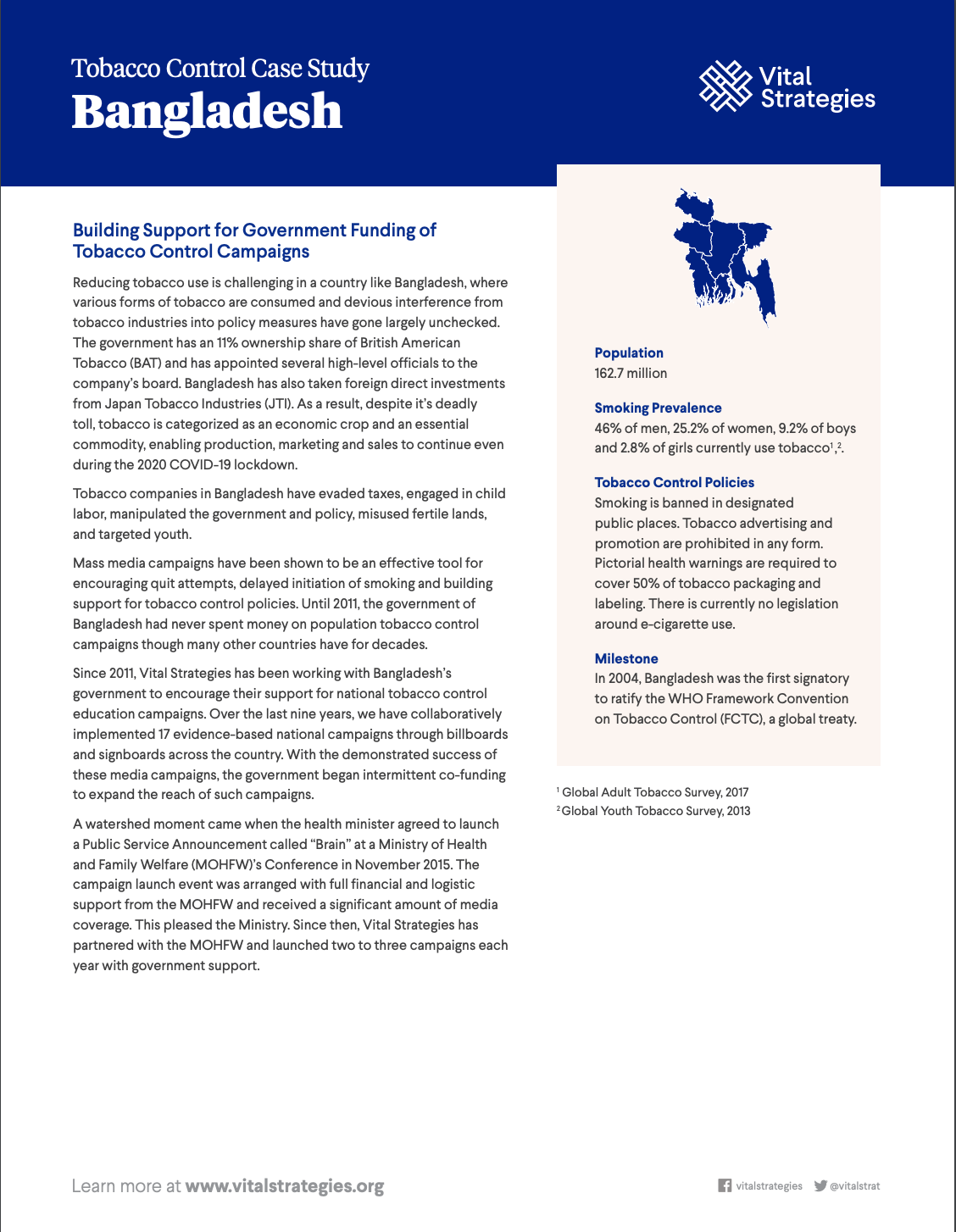Reducing tobacco use is challenging in a country like Bangladesh, where various forms of tobacco are consumed and devious interference from tobacco industries into policy measures have gone largely unchecked. The government has an 11% ownership share of British American Tobacco (BAT) and has appointed several high-level officials to the company’s board. Bangladesh has also taken foreign direct investments from Japan Tobacco Industries (JTI). As a result, despite it’s deadly toll, tobacco is categorized as an economic crop and an essential commodity, enabling production, marketing and sales to continue even during the 2020 COVID-19 lockdown.
Mass media campaigns have been shown to be an effective tool for encouraging quit attempts, delayed initiation of smoking and building support for tobacco control policies. Since 2011, Vital Strategies has been working with Bangladesh’s government to encourage their support for national tobacco control education campaigns.
Recent Abstracts
Effects of Heat on Early Childhood Development
Blood Lead Surveillance of Children and Pregnant Women in Tamil Nadu, India
Sportswashing through Media: Coca-Cola’s Olympic Play – A Research Report
What’s in Our Food?
Mais Dados Mais Saúde
More Data, Better Health – Primary Health Care
Mais Dados Mais Saúde: Experiência De Discriminação Cotidiana Pela População Brasileira
More Data, Better Health – Experience of everyday Discrimination by the Brazilian population
Monitoramento de Estratégias pelo Fim da Violência contra Crianças e Adolescentes
Harm Reduction: The Neglected Pillar of US Drug Policy
